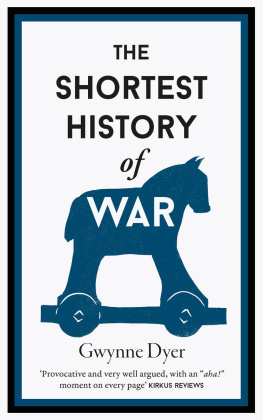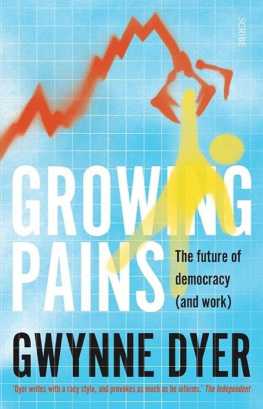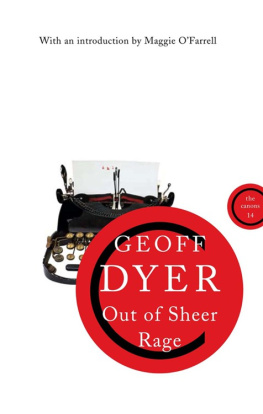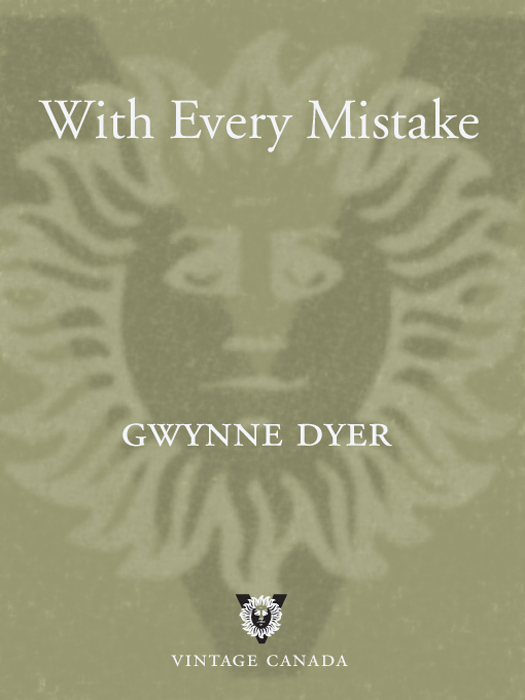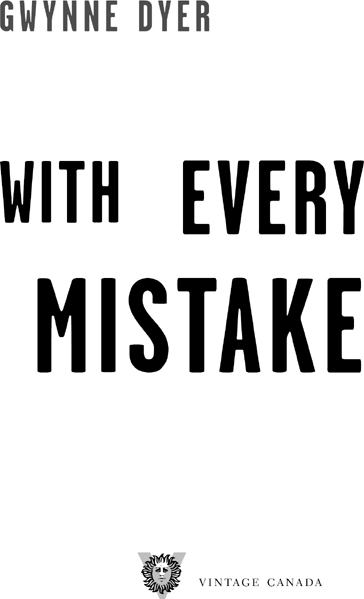INTRODUCTION
I can remember telephone numbers that I havent called in years. I can even remember all my childrens names. But I generally cannot remember the topic, let alone the title, of the article I wrote twenty-four hours ago.
Its a defensive measure, an antibrain-clutter device; I write at least a hundred of the things a year, and it has never caused me any anguish. Since I go through a laptop about every eighteen months, the old articles are not easily available for me to peruse even if I did want to revisit the scene of the crime. So it has been a new and rather humbling experience to make a selection of my newspaper pieces from 2001 to 2004the first time I have done such a thing in thirty-two years of writing the column.
The main reason for doing so now is to try to understand why we all got things so badly wrong in the past few years. Not seeing the terrorist attacks of 9/11 coming was understandable enough because they did come rather out of the blue. But not foreseeing the scale of the American response, and not understanding the thinking that lay behind the neo-conservatives strategy, were major failures for which the Western mediawe journalists, reallybear a heavy responsibility. As we watched, the worlds greatest power was going rogue and the lies were growing bigger and more brazen than they had been in living memory, but we clung for far too long to the beliefthe hope, maybethat it was all just an aberration driven by the shock of 9/11.
I dont expect journalists to be wiser than other people, but we do have the time to think hard about what is actually going on in the world and the duty to tell the truth as we see it. Most other people dont have the time or the access to do this sort of investigation and interpretation, whereas that is actually our full-time job. The historians will only get at the same events far too late to make any difference, and everybody directly involved in them at the time will be spinning like mad for their particular interest, so who else is going to do the job of making sense of them for the public if journalists dont? We will disagree in our conclusions, of course, but at least we can agree on most of the facts and offer a range of coherent interpretations of those facts for the public to choose from. This privileged role imposes a corresponding obligation on journalists. At the risk of sounding idealistic, I would say that being truthful and, if necessary, brave, are objective requirements of the journalists tradebut there was not nearly enough of those qualities on display during the period under discussion.
Lets begin with the most shaming moment in the modern history of American journalism: it was at the annual dinner of the Radio and Television Correspondents Association in June 2003. The guest of honour was Vice-President Dick Cheney and his closing remarks were about the journalists contribution to the US invasion of Iraq. You did well, he said. You have my thanks. Some of the journalists presumably had the decency to squirm in their seats at that unsolicited testimonial, but a great many of them werent even embarrassed. Which tells you that the American media, at least, are in serious trouble.
There were some special reasons for that response. The shock of the 9/11 attacks inevitably unleashed a tremendous burst of raw nationalism in the United States, and there were few Americans journalists who were willing to be openly critical of their governments actions in the period that followed. The attacks also came at the end of a decade when there had been huge cutbacks in American coverage of foreign news, and even 9/11 didnt really change that for long. There are entire parts of the world that simply dont exist as far as the American mediaespecially the broadcast mediaare concerned.
Two factors converged in the 1990s to dumb down and demobilize the news-gathering operations of the American electronic media. The end of the Cold War provided an excuse to scale back sharply on foreign news, and the takeover of the major networks by large corporations whose principal interests lay elsewhere ABC by Disney, NBC by General Electric and CBS by Viacomcreated a strong incentive to do so. In the old scheme of things, television news had been treated as a loss leader to draw audiences for the networks profitable entertainment programming. Now news was expected to be a profit centre in its own right, and foreign news costs were about twice as much per broadcast minute as domestic news.
Add to all this the domination of American commercial radio by shock-jocks and right-wing ranters and the rise of Fox News, a thinly disguised political propaganda operation, and the utter failure of American broadcast news to challenge the Bush administrations spin on the war on terror becomes easier to understand. For more than percent of Americans, radio and television are the principal sources of news, which explains most of what went wrong in the American medias coverage over the past four years. But American newspapers didnt exactly cover themselves with glory either. Several of them, including the New York Times, have had the decency to apologize to their readers for their uncritical acceptance of the administrations arguments in favour of invading Iraq and they have conducted internal inquiries into how they betrayed their own values. But there is one aspect of the problem that goes deeper than those inquiries can delve: even at the best of times, the American media are notably more deferential to authority than their counterparts in other English-speaking countries.
This attitude is a question of national culture: can you imagine the British or Australian or even Canadian media letting a national leader get away with a stunt like donning a flight-suit and landing on a carrier to announce the (allegedly) victorious end of a war? The United States is a deeply conservative, militaristic, church-going society, and even the boldest and most cynical of American journalists must work within the bounds of a national culture that views both its elected leaders and its armed forces with something near to reverence. In addition, the chill on critical comment that descended on the US media after 9/11 was still very much in force at the time of the invasion of Iraq in 2003, so maybe the American medias failure to do its job can be seen as a one-time aberration. But the truth is that the rest of us didnt do very well either.
Take, for example, the British press. The foreign-owned newspapers (Conrad Lord Blacks Daily Telegraph and Rupert Murdochs Times and Sun) did their duty by their North Americanbased masters and loyally supported Mr. Bushs war, whereas the British-owned papers mostly opposed the invasion of Iraq


